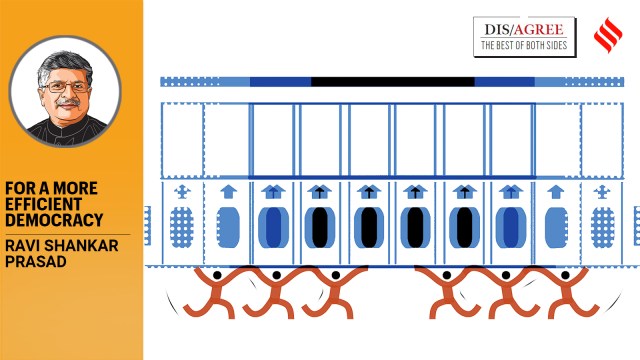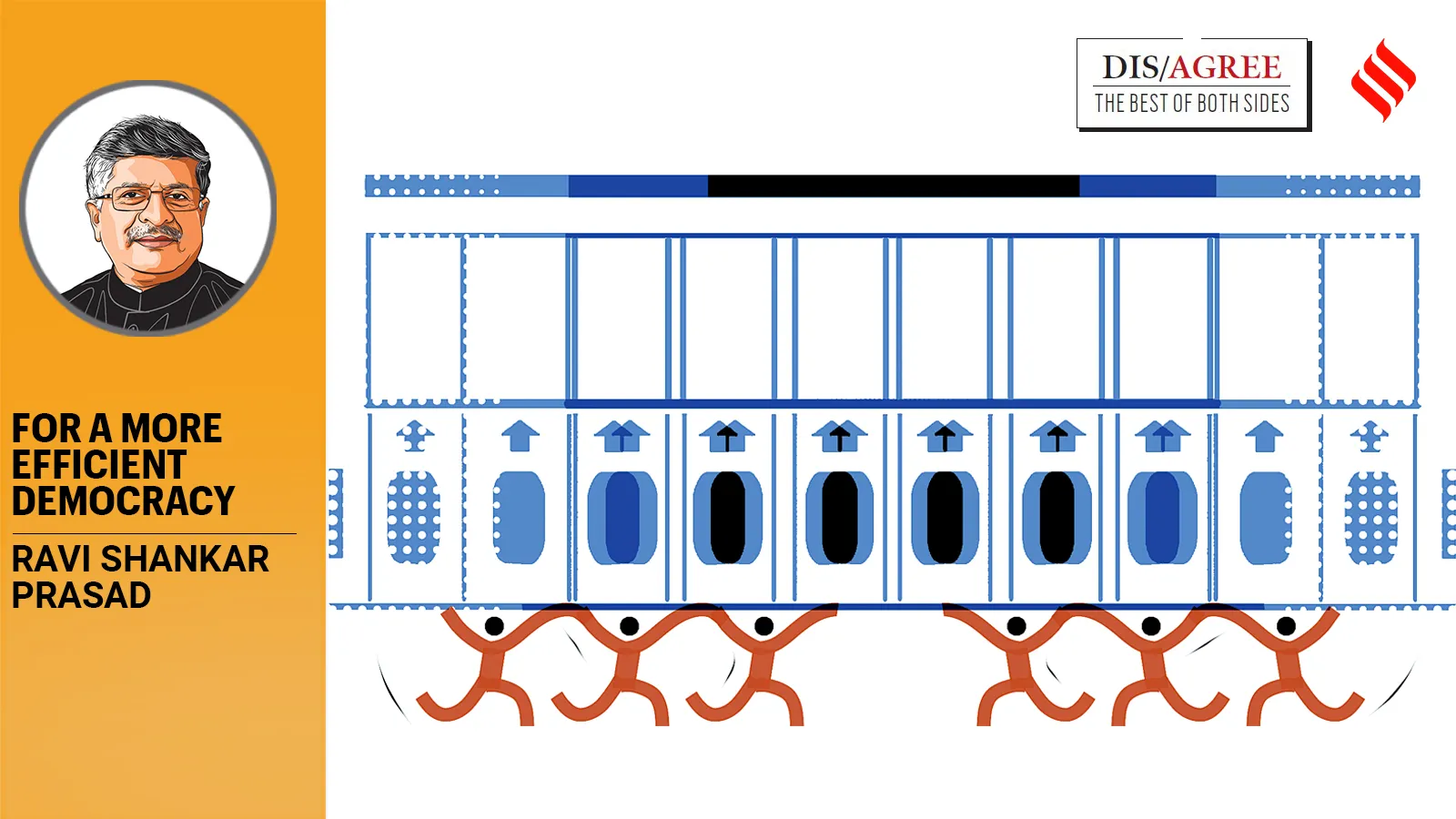
It has been 77 years since India gained Independence. The country’s democratic journey has seen ups and downs and a serious aberration when Emergency was imposed and rights were curtailed. However, overall, the people of India have justified the trust reposed in them by the makers of the Constitution — that is, every Indian citizen regardless of caste, religion, gender, community or educational qualification shall vote in the election. Many problems clouded the election process — money power, booth capturing, abuse of government machinery, etc — but over the years, changes were made, technology was used and concerns were addressed. Indian democracy became stronger. Today, people know they can unseat any government at the Centre or the state through their vote.
We need to continuously strengthen our democracy so that it reflects the popular will and simultaneously, reduces problems for the administration and Election Commission (EC). Rising expenditure and the convenience of voters must be kept in mind. The Union Cabinet’s decision to accept the report of the committee headed by former President Ramnath Kovind recommending One Nation, One Election is not only welcome but represents one of the most significant steps in the pursuit of making our democracy more meaningful and vibrant.
There were simultaneous elections to the Lok Sabha and Vidhan Sabha from the first general election in 1952 till 1967. Prime Minister Indira Gandhi opted for mid-term polls in 1971, followed by the dissolution of various assemblies and the imposition of President’s Rule from time to time, all of which led to incongruities in election schedules. Today, there are, on average, five elections every year. Take 2024. In April-May, there was the Lok Sabha election, currently, elections are being held in Jammu and Kashmir and Haryana, closely followed by Maharashtra and Jharkhand. These will be followed early next year by an election in Delhi, followed by Bihar and then West Bengal and Uttar Pradesh.
Due to the imposition of the Model Code of Conduct (MCC), development work stops. Huge expenditure is involved and a particular state election also impacts development projects at the national level. Our country remains in election mode every year and negative or positive verdicts in a particular state also impact the stability of the polity as a whole. In Haryana and J&K, the MCC was in place during the general elections just months ago, and it is in effect once more now. Therefore, frequent elections cause inconvenience to the voters.
EC recommendations (1983), Law Commission Reports (1999/2018), the Constitution Review Commission report (2002), the parliamentary standing committee and Niti Aayog have all emphasised the need to hold simultaneous elections.
Prime Minister Narendra Modi and Home Minister Amit Shah must be complimented for constituting a high-level Committee to study and report on simultaneous elections. Former President Kovind did a remarkable job. There was an elaborate consultation process. From the report, it is evident that four retired Chief Justices of India, dozens of other judges and retired high court chief justices, former chief election commissioners and other stakeholders, including political parties, were consulted. A majority of political parties supported the proposals. The report considers constitutional and legal issues, several relevant judgments and how simultaneous elections are held in different democracies.
The Committee has proposed various amendments to Articles 83 and 172, as well as the addition of Article 82A. The sum and substance of the amendment is that if the Lok Sabha is dissolved before the full term of five years and if an election is held, it will be only for the balance period of five years. Further, under the proposed amendment 82A, the President on the date of the first sitting of the House of the People after the general election will bring into force Article 82A by a notification and the date of the notification will be the appointed date. All the Vidhan Sabhas constituted in any general election held after the appointed date shall come to an end on the expiry of the five-year term of the Lok Sabha. This amendment can be made by Parliament and may not need ratification by state assemblies.
There are also other salutary provisions to make the task workable. The Committee has recommended that all the political parties should agree to make simultaneous polls effective from 2029. It has also emphasised the need for simultaneous polls for municipal corporations, and panchayats within 100 days of the Lok Sabha polls. There should be one common voter list for all polls. For municipal and panchayat elections, the Committee has proposed amendments to the Constitution, which would need ratification by 50 per cent of state assemblies.
One nation, One Election will be the biggest tool in making our democracy effective, vibrant and participative.
The writer is an MP, Senior Advocate at the Supreme Court and a former Union minister
© The Indian Express Pvt Ltd
First uploaded on: 20-09-2024 at 00:55 IST



